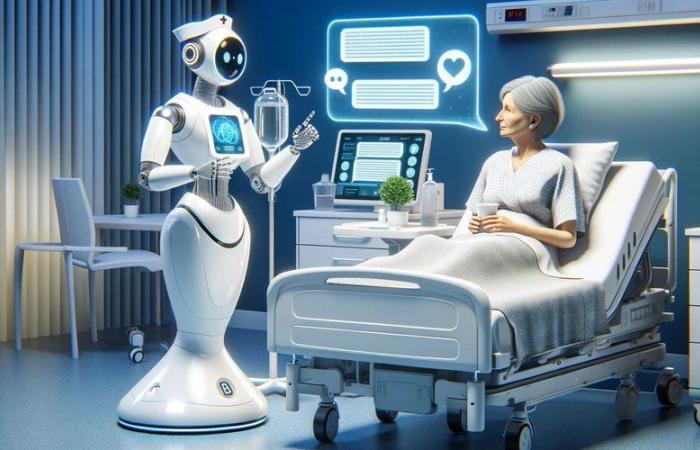
An intelligent tool capable of anticipating future events in a patient’s life, whether future symptoms or treatments to be prescribed, has just been developed. It is powered by a large British and American public database. The first results are particularly encouraging.
A study by researchers at the Institute of Psychiatry, Psychology & Neuroscience (IoPPN) at King’s College London demonstrates the effectiveness of an AI-powered tool called Foresight. The latter is capable of predicting the medical future of patients, simply by analyzing their electronic health records.
For this, three models were developed, trained using data from some 811,000 patients directly from the United Kingdom public health system from two hospitals in England and from a large American database. The idea is to “predict“the health trajectory of patients by anticipating disorders, symptoms, medications to take and upcoming procedures.
A success rate that varies
All of this data was used to train Foresight and performance was measured by comparing its predictions to actual results subsequently observed in these patients. And it is clear that Foresight was correct in most cases. The tests showed that the tool correctly identified the ten disorders likely to appear in a patient’s timeline in respectively 68%, 76% and 88% of the cases treated in its three models. They are also conclusive when predicting the next medical event to come, whether it is the appearance of a disorder, a relapse or the taking of a medication, with an accurate prediction of respectively 80%, 81% and 91%.
This work was the subject of a publication in the journal The Lancet Digital Health. In the future, this kind of health ChatGPT could help with clinical decision-making and real-time patient monitoring.
This is not the only smart tool developed to improve doctors’ diagnoses. In the United States, the American start-up Hippocratic AI recently announced a partnership with Nvidia to develop a virtual health agent project powered by generative artificial intelligence. The idea is to set up a virtual assistant capable of understanding and reacting to patients’ emotions, in the form of an animated character, on a tablet, who communicates remotely with the patient.





